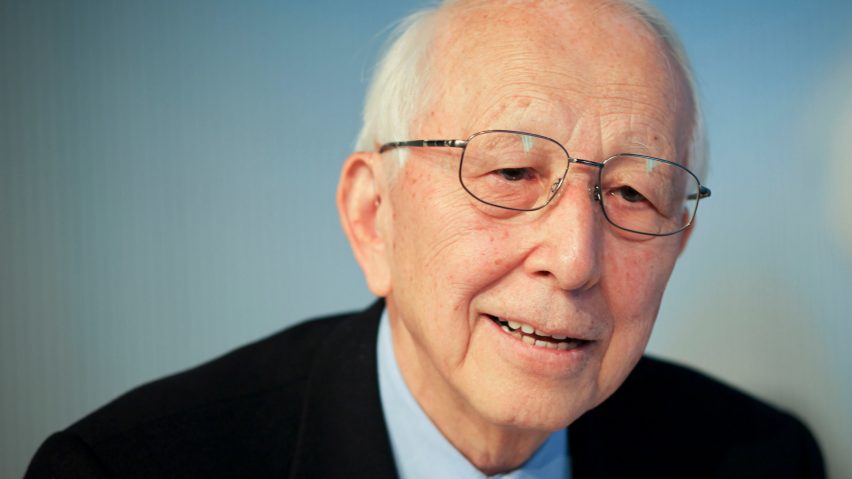
Pritzker Prize-winning architect Fumihiko Maki dies aged 95
Japanese architect Fumihiko Maki, who designed buildings including 4 World Trade Center and was one of the founders of metabolism, has died aged 95.
A winner of both the Pritzker Architecture Prize and the AIA Gold Medal, Maki passed away on 6 June due to natural causes, his studio Maki and Associates told Dezeen.
"Fumihiko Maki lived a life of remarkable achievement and fulfillment, encircled by a wealth of esteemed professionals, academic colleagues, patrons, as well as cherished friends," said studio principal Gary Kamemoto.
"We earnestly hope that the architectural works created under his leadership at Maki and Associates will be deeply loved and continue to enrich communities for generations to come," he continued.
"We reaffirm our dedication to embracing and advancing his wishes to evolve the project he called Maki and Associates in alignment with his visionary ethos."
Trained at the University of Tokyo and Harvard University, Maki's work combined Western and Eastern influences and varied greatly in style.
"He is a modernist who has fused the best of both eastern and western cultures to create an architecture representing the age-old qualities of his native country while at the same time juxtaposing contemporary construction methods and materials," wrote the jury in his Pritzker Architecture Prize citation.
"There is amazing diversity in his work – from the awesome Nippon Convention Center near Tokyo with its man-made mountain range of stainless steel roofs to his earlier and smaller YKK Guest House or a planned orphan village in Poland."
Maki was born in 1928 in Tokyo, where he studied architecture before moving to the USA to continue his education. After graduating from Harvard, he took a teaching position at Washington University in St Louis, where he designed his first building – the Steinberg Hall arts centre – for the institution.
In the 1960s, he returned to Japan to help launch the metabolism movement and establish his studio Maki and Associates in Tokyo.
Throughout the 20th century, he designed numerous significant buildings in Japan including the Osaka Prefectural Sports Center, Fujisawa Gymnasium and Makuhari Messe convention centre, as well as the Hillside Terrace Apartments, which was completed over a period of 23 years.
In recent years he completed an expansion to the UN in New York and the 72-storey 4 World Trade Center skyscraper.
In Toronto, he designed a white granite museum for the Aga Khan Foundation, while in London, he completed the Aga Khan Centre in King's Cross in 2018.
Maki was recognised with architecture's highest honours including the Pritzker Architecture Prize, which he won for his buildings "that are not only expressions of his time, but that are destined to survive mere fashion" in 1993, and the AIA Gold Medal in 2011.
The main photo is by jeanbaptisteparis.